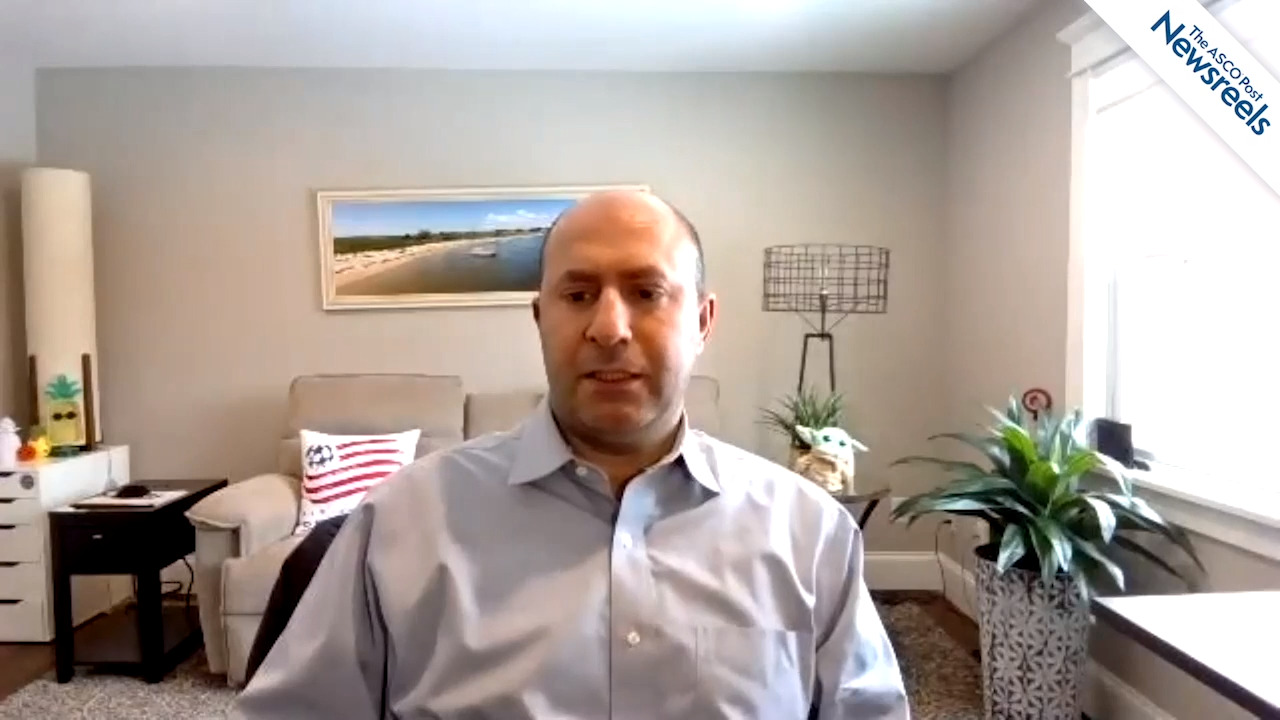Tracy L. Rose, MD, on Bladder Cancer: Gemcitabine, Cisplatin, and Pembrolizumab as Neoadjuvant Therapy
2021 Genitourinary Cancers Symposium
Tracy L. Rose, MD, of the University of North Carolina at Chapel Hill, discusses phase II results of gemcitabine and split-dose cisplatin plus pembrolizumab as neoadjuvant therapy prior to radical cystectomy for patients with muscle-invasive bladder cancer. The trial showed this combination treatment is generally safe and may improve pathologic downstaging, but further study is warranted (Abstract 396).
The ASCO Post Staff
Felix Y. Feng, MD, of the University of California, San Francisco, discusses study findings showing that molecular determinants may help clinicians select patients with nonmetastatic castration-resistant prostate cancer who may derive the most benefit from apalutamide and other androgen-signaling inhibitors (Abstract 8).
The ASCO Post Staff
Christopher Sweeney, MBBS, of Dana-Farber Cancer Institute, discusses phase III findings from the IPATential150 trial, which showed the effectiveness of ipatasertib plus abiraterone as first-line treatment in patients with metastatic castration-resistant prostate cancer vs placebo plus abiraterone. Analyses of biomarkers linked to the PI3K/AKT pathway, a subtype with a poor prognosis, further support this therapeutic option (Abstract 13).
The ASCO Post Staff
Monika Joshi, MD, of Penn State Hershey Cancer Institute, discusses phase II results from the DUART study, which explored the efficacy of concurrent durvalumab, a checkpoint inhibitor, and radiation therapy followed by adjuvant durvalumab in patients with localized urothelial cancer of the bladder (Abstract 398).
The ASCO Post Staff
Toni K. Choueiri, MD, of Dana-Farber Cancer Institute, discuses a preliminary phase II analysis of the HIF-2a inhibitor belzutifan in combination with cabozantinib, which showed antitumor activity in previously treated patients with metastatic clear cell renal cell carcinoma (Abstract 272).
The ASCO Post Staff
Sumanta K. Pal, MD, of City of Hope, discusses findings of the TIVO-3 study, which showed that the tyrosine kinase inhibitor tivozanib improved progression-free survival vs sorafenib in patients whose advanced renal cell carcinoma progressed after multiple lines of therapy (Abstract 278).





